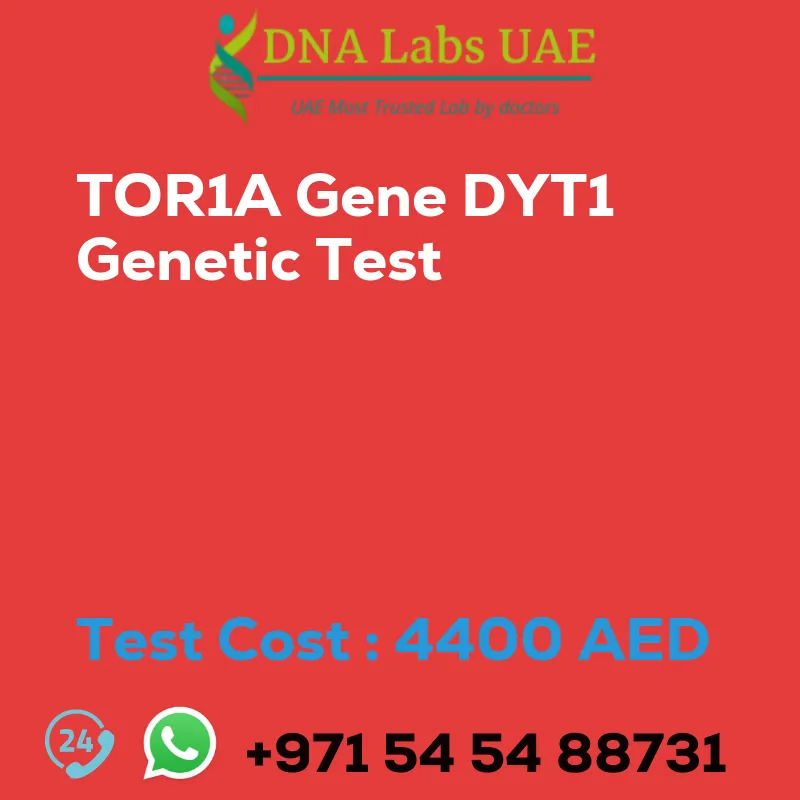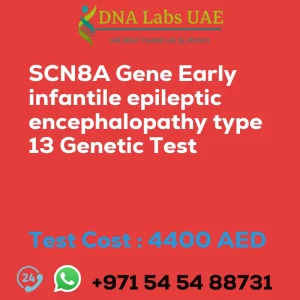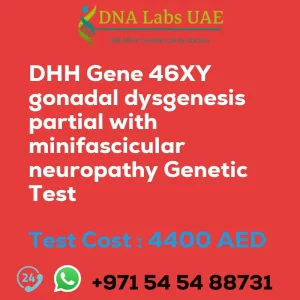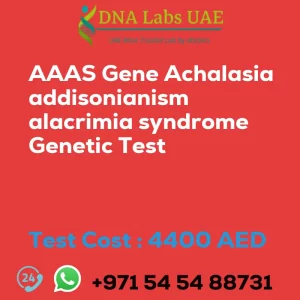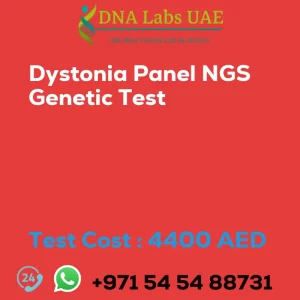TOR1A Gene DYT1 Genetic Test
Components
Price: 4400.0 AED
Sample Condition
Blood or Extracted DNA or One drop Blood on FTA Card
Report Delivery
3 to 4 Weeks
Method
NGS Technology
Test Type
Neurological Disorders
Doctor
Neurologist
Test Department
Genetics
Pre Test Information
Clinical History of Patient who is going for TOR1A Gene DYT1 NGS Genetic DNA Test
A Genetic Counselling session to draw a pedigree chart of family members affected with TOR1A Gene DYT1
Test Details
The TOR1A gene is associated with the development of DYT1 dystonia, a neurological disorder characterized by involuntary muscle contractions that cause twisting and repetitive movements. The TOR1A gene provides instructions for making a protein called torsinA, which is involved in the movement and positioning of cells within the body.
NGS (Next-Generation Sequencing) is a genetic test that uses advanced sequencing technology to analyze the DNA sequence of the TOR1A gene. This test can identify specific mutations or variations in the TOR1A gene that may be associated with DYT1 dystonia.
The NGS genetic test for the TOR1A gene can help diagnose DYT1 dystonia and provide information about the risk of passing the condition on to future generations. It may also help guide treatment decisions and inform genetic counseling for individuals and families affected by DYT1 dystonia.
| Test Name | TOR1A Gene DYT1 Genetic Test |
|---|---|
| Components | |
| Price | 4400.0 AED |
| Sample Condition | Blood or Extracted DNA or One drop Blood on FTA Card o |
| Report Delivery | 3 to 4 Weeks |
| Method | NGS Technology |
| Test type | Neurological Disorders |
| Doctor | Neurologist |
| Test Department: | Genetics |
| Pre Test Information | Clinical History of Patient who is going for TOR1A Gene DYT1 NGS Genetic DNA Test A Genetic Counselling session to draw a pedigree chart of family members affected with TOR1A Gene DYT1 |
| Test Details |
The TOR1A gene is associated with the development of DYT1 dystonia, a neurological disorder characterized by involuntary muscle contractions that cause twisting and repetitive movements. The TOR1A gene provides instructions for making a protein called torsinA, which is involved in the movement and positioning of cells within the body. NGS (Next-Generation Sequencing) is a genetic test that uses advanced sequencing technology to analyze the DNA sequence of the TOR1A gene. This test can identify specific mutations or variations in the TOR1A gene that may be associated with DYT1 dystonia. The NGS genetic test for the TOR1A gene can help diagnose DYT1 dystonia and provide information about the risk of passing the condition on to future generations. It may also help guide treatment decisions and inform genetic counseling for individuals and families affected by DYT1 dystonia. |

